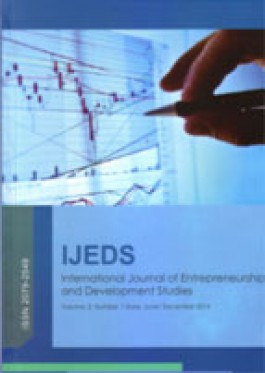
CUSTOMER SATISFACTION IN REAL ESTATE SECTOR IN BANGLADESH
Written by: Musfiq Mannan Choudhury, PhD & Dipozzwal Sen
In this paper, the researchers evaluate the level of customer satisfaction on completed construction projects of the booming construction industry. Advancing the work of Kärnä (2004) and Maloney (2002), the researchers test the model in the context of Bangladesh. The findings of the study reveal a high level of dissatisfaction of the ultimate products and services of the construction industry. Several implications for both research and practitioners are derived in this study.
COMPARATIVE ECONOMIC PERSPECTIVES ON EDUCATION
Written by: Dr. Mohammad Israr Khan
Education has been viewed variously by different disciplines and different people. Earlier education occupied a sacred space and it was highly out of reach of common people and masses. With the advent of industrialization and economic progress it became a means of skill formation. The skill aspect was later on termed as human capital component comparative to physical capital in machines and instruments. Since the days of classical economics this added component of economic value has occupied prime importance. However non-mainstream perspectives like the dialectical and subaltern ones make a critique of mainstream educational system as being subservient to interests of capitalist and other socially and economically empowered groups. Provision of education being controlled by the dominant interests it does not become equally available to all, especially the poor and marginalized groups like minorities and historically discriminated communities. It also does neither serve to their needs, nor enrich their socio-cultural endowments. Hence from an inclusive and universal perspective there is a dire need for level playing field for different systems of education, particularly the traditional indigenous systems which are cheaper and rooted in the social context.
TECHNOLOGY ACCEPTANCE MODEL AND SOCIAL CRM: A MODEL FOR CUSTOMER ENGAGEMENT
Written by: Musfiq Mannan Choudhury, PhD
Social CRM is a new domain of research which has come into focus of interest built on the development of social media technologies since 2006. Here, based on the work of Harrigan et. al. (n.d.) and Brodie et. al. (2011) along with the purview of the extensive literature on customer engagement in CRM in the Journal of Service Research, 2010, this study develops a conceptual model to explain the relationships leading to possible outcomes of implementing social CRM. The Technology Acceptance Model (TAM) of Davis (1989) was incorporated into the model to provide a clear picture of how customers accept a new technology and possible engagements in the media. The model will be tested using structural equation modelling. Possible findings will lead to new relationships amongst the variables, hence contributing to knowledge building on existing literature. Business practitioners will benefit from getting first insights into how customers look into their engagements in social media technologies and what are the manifestations of the customer communications in such media.
CUSTOMER SATISFACTION OF RETAIL BANKING IN BANGLADESH: A CASE STUDY ON SONALI BANK LIMITED
Written by: Syed Ahmed Tajuddin & Faisal Ahmed
This study attempted to understand the customer satisfaction on different service quality variables like the promise of quality service, on time service, employee’s cooperativeness, quick service, employee’s knowledge, attractive infrastructure and modern technology. The study was based on both the primary and secondary sources of information. Primary data were collected by using personal survey. For conducting the survey, total sample size of 50 were taken. Secondary data were collected form Annual report of the company’s different books, articles and from website of concerns organization. The broad objective of the study is to identify the customer satisfaction of service quality of Sonali Bank Ltd. And the specific objectives are to find out about customer’s expectation from the bank, to evaluate performance of employees of the bank and to find out customers satisfaction on overall services of Sonali Bank Ltd. From this study it is found that Sonali Bank Limited does not provide quality services, does not solve customers’ problem sincerely, does not provide services on time and the customers are dissatisfied on the employees of the bank and they said that the employees are not cooperative to the customers and they do not provides quick services. Moreover, most of the customers are dissatisfied about the infrastructures of the bank as the bank does not use modern technology for serving to the customers. This study recommends the bank to give more emphasize on their service quality, computerize all its functions and provide online banking facility at all branches.
Services of Mobile Banking bKash at Rajshahi
Written by: Md. Shawan Uddin, Md. Shamim Hossain & Md. Salah Uddin
This study has been conducted based on the field survey to draw the effects of mobile banking in developing country like Bangladesh. Mobile banking, and consequently, mobile payments and mobile money are the latest in a numerous of emerging technological innovations in the banking sector. The usage of mobile banking payments by means of mobile phones, have increased in modern era in Bangladesh. A self administrated questionnaire had been developed and distributed among 40 subscribers of Bangladesh's first complete mobile financial service provider, bKash limited, a Brac Bank subsidiary, launched its operation at Rajshahi City. The study has been conducted to analyze the customers motivating factors such as service charge, nature of the security and trust on the mobile banking operation of bKash. Besides with, this study reveals to assess the customers’ satisfaction of the availability and speediness of the mobile banking bKash. Factors such as availability, time consumptions and security are found positively related to the clients of the mobile banking bkash. However, service charge is the only factor found negatively related to the clients.



